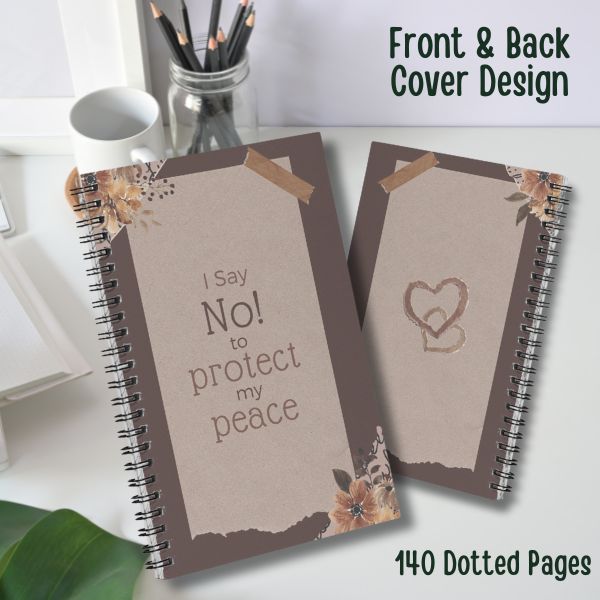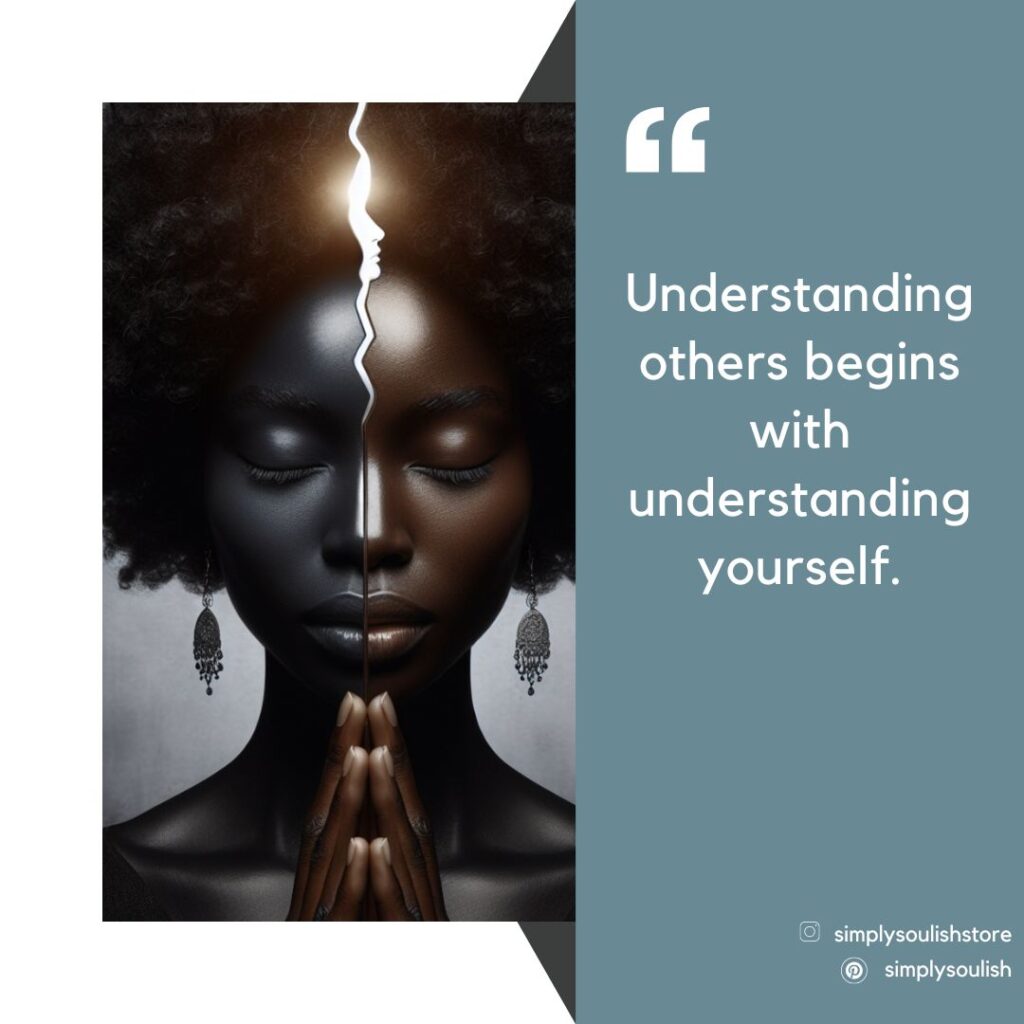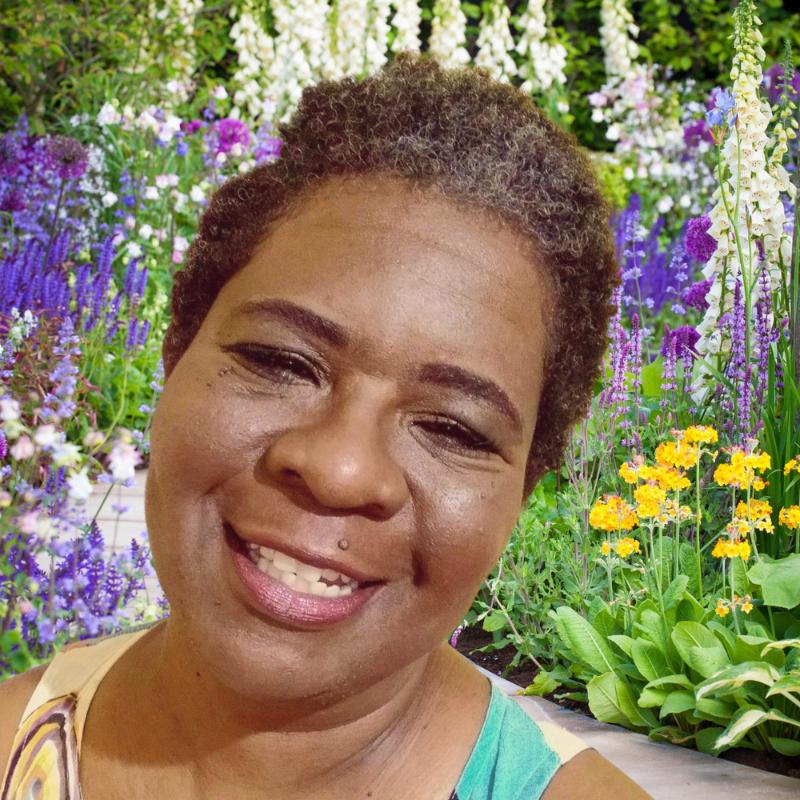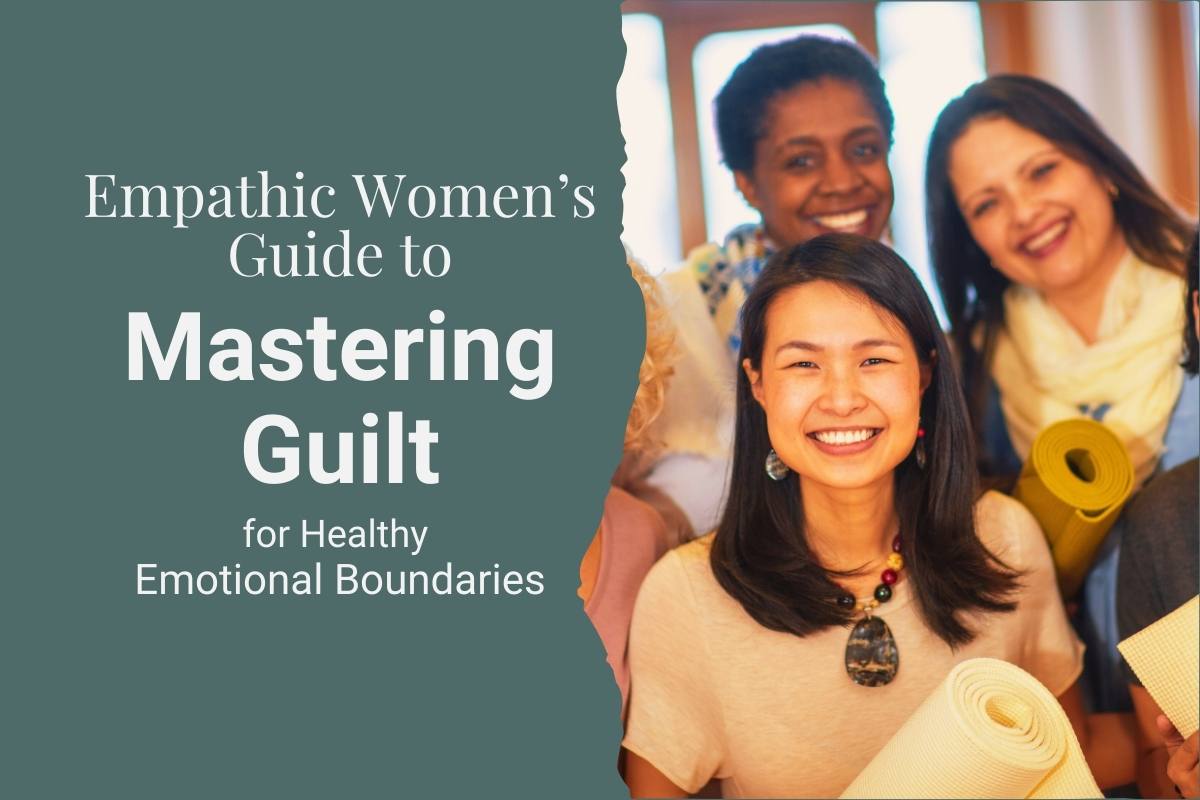I am not a licensed therapist or medical professional. The content on this blog is for informational purposes only and should not be considered as professional advice.
This post may contain affiliate links. If you make a purchase through these links, I may earn a small commission at no extra cost to you. Read More on our Disclaimer Page.
Empower your empathic journey with our guide, “Mastering Guilt for Healthy Boundaries.” In our exploration of heightened sensitivity in “Navigating Empathy,” we’ve delved into the intricacies. Now, let’s uncover the transformative power of navigating guilt for setting boundaries among empathic women over 40.
Defining Emotional Boundaries:
Think of Empaths as the ‘original emotional Wi-Fi.’ Without proper boundaries, just like an unsecured Wi-Fi connection, empaths risk being bombarded and drained by others’ energy. Emotional boundaries act as the ‘firewall’ around our empathy, preserving our well-being and enhancing our ability to navigate the world with enhanced resilience.
The first 2 Key points to know about setting emotional boundaries are:
- They are NOT one-size-fits-all.
- They are NOT set-it-and-forget-it.
For example, boundaries will, by necessity, be different for your co-workers than for your close relationships. Additionally, within each of these relationship dynamics, the boundaries you create will expand or contract according to how each person is affecting your well-being.
Understanding the Importance:
To further clarify, here is a typical scenario regarding emotional boundaries that empaths experience:
Leslie and Tracey, inseparable sisters, normally shared every detail of their lives. As the demands of their busy schedules intensified, so did Tracey’s daily venting about work stress.
Leslie, inherently empathic, initially listened compassionately, offering comfort and understanding. However, the daily ritual transformed into a relentless emotional drain for Leslie.
The weight of Tracey’s stress began seeping into Leslie’s own emotional life. In the midst of this, Leslie had to confront a huge realization – the once-clear boundary between being a supportive sister and safeguarding her emotional well-being had blurred.
The need for change became unavoidable. Leslie found herself grappling not only with the practical ‘how-to’ of setting boundaries with her sister, whom she loved very much but also her feeling of guilt at needing to.
Being unclear on the how-to combined with feeling guilty is where many of us as empaths can become stuck in setting emotional boundaries.
Navigating Guilt and Empathic Challenges:
An often stress-inducing aspect of boundary-setting for empaths is handling guilt. It regularly feels like attempting to contain an emotional tornado when guilt comes knocking on the empathic door.
As empaths, we possess a unique ability to absorb emotions, and guilt is no exception. It sits on our shoulders, murmuring stories of selfishness and neglect.
However, caring for ourselves isn’t just self-love, it’s also self-preservation.

The 3 most common challenges empaths face when confronted with feelings of guilt about setting emotional boundaries:
- Trying to figure out whether our feeling of guilt is an imaginary internal exaggeration or an actual subtle (or not so subtle pressure) from the other person.
- How to feel comfortable and accept the experience of guilt, as a part of life.
- Logically understand that without setting the boundary we run the risk of harming our emotional well-being.
Although seemingly separate, these challenges usually happen simultaneously, which results in a blend of confusion and guilt. As empaths, we are already swimming, or rather treading water, through too many emotions, so this added combination is never welcomed.
Unfortunately, many of us will delay setting boundaries, not because we’re weak, but because there are just too many overwhelming emotions involved.
The Empowered Process of Mastering Guilt:
What exactly is guilt? Guilt is the emotion that arises when we feel as if we have done, or are about to do, something wrong.
It is an uncomfortable emotion, no one enjoys feeling guilty. However, for some people, it is an emotion that has to be assimilated and then released, during the boundary-setting process.
It’s important first to acknowledge that not all empaths will experience guilt while setting emotional boundaries.
But for those of us who do, there are 2 things to keep in mind:
- It is not an easy process and requires patience with ourselves.
- It takes practice, and it’s best to remain consciously aware and minimize criticizing our efforts along the road to getting better at handling feeling guilty.
In short, handling guilt as an empath requires increased self-compassion through patience and self-encouragement through positive self-talk.
Steps to Overcoming the 3 main challenges associated with Guilt:
The first step is not a step, but worthy of mention at this point. Handling and eventually mastering guilt within yourself is an important prerequisite to setting a boundary with anyone.
If you haven’t gained clarity about feeling guilty, there’s a higher probability you can activate more of those feelings within yourself, while attempting to set the boundary.

One of your best resources in overcoming the challenges associated with guilt is a notebook, a physical notebook. It’s simple but effective.
You are free to use this notebook in the way that best helps you to reflect and become clear. For some, it’s drawing doodles or creating art (especially Neurographic Art), and others prefer writing or journaling (including stickers to reflect their mood).
STEP 1. Figuring out the Source of Your Guilt:
Gaining clarity on the source of your guilt may be the most time-consuming and require the most self-reflection.
One of the best practices for figuring out the source of your guilt is creating time blocks to be undisturbed and quiet.

This step may require more than one time block depending on the complexity of the relationship you need to address.
You will want to answer as honestly as possible these 3 questions:
- Is the guilt I’m feeling caused by pain from prior relationships?
- Is it challenging my self-concept of being a giving person?
- Is my guilt related to anything the person has said, or implied, to me directly?
Undoubtedly, getting past the guilt when setting boundaries for some relationships will give an answer that has elements of all 3 questions, while others will easily be relevant to only one of the questions.
The more clarity you feel after answering these questions, your next step will be easier.
A Personal Story to Add Context to This Exercise:
I was close friends with a married couple who started having problems in their relationship. I was close to both of them.
Initially, I was able to listen compassionately to them individually, but as the problems in their marriage deepened, I realized continuing to communicate about their issues was impacting my emotional well-being.
The ‘tsunami of guilt’ washed over me when I knew I needed to stop listening to both sides and create boundaries.
My reflection exercise had a 3-fold answer:
- I was re-living the guilt of stepping away from a prior friendship.
- It re-awakened my self-criticism of not wanting to give my intuitive energy or wisdom to help soothe their pain.
- They had always been kind and giving friends to me, how could I abandon them in their time of need?
STEP 2. Changing Your Self-Talk about Guilt:
Once you’ve identified the source of your guilt, the next important step is transforming the way you talk to yourself about it. As empaths, we often carry an innate sense of responsibility for the emotions of those around us, making self-compassion crucial.

- Acknowledge Your Empathic Nature: Begin by recognizing that your empathic nature, while a beautiful gift, can sometimes lead to feelings of guilt. Understand that it’s okay to prioritize your well-being without betraying your compassionate nature.
- Reframe Negative Thoughts: Challenge negative thoughts associated with guilt by reframing them positively. Instead of viewing boundary-setting as abandonment, consider it an act of self-preservation. Replace self-criticism with affirmations that reinforce your right to emotional autonomy.
- Practice Affirmations: Develop a set of affirmations tailored to your situation. Remind yourself that setting boundaries is an act of love, both for yourself and others. Repeat these affirmations regularly to reinforce a positive mindset.
- Connect with Supportive Communities: Seek inspiration from others who have navigated similar empathic challenges. Engage with books, podcasts, or online communities that share empowering stories and strategies for guilt-free boundary-setting.
A Personal Insight from My Journey:
In my determination to handle guilt, I realized the power of affirmations. Initially, every attempt to set boundaries filled me with guilt, questioning my loyalty and compassion. Through consistent positive self-talk, I transformed guilt into a reminder that my emotional well-being matters. Affirmations like “Boundaries are Self-Love in Action” became my mantra, giving me newfound strength.
These steps form a foundation for reshaping your relationship with guilt and open the way for effective boundary-setting. Remember, it’s a journey, and each small shift in self-talk contributes to the transformative process.
Step 3: Introducing Logic to Overcome Guilt:
The final step in turning our understanding into action involves tapping into our logical brain. While empaths operate mainly from an emotional space, our capacity for logic is substantial.
Introducing logic helps to override extreme emotions linked to guilt. Once our logical brain comprehends that setting emotional boundaries preserves our well-being, taking action becomes easier.
An empowered empath is attuned to their emotions and acknowledges the impact of others’ emotions. Logic reinforces the idea that maintaining our emotional and mental health is crucial.
Setting boundaries is not just for self-preservation but also benefits others involved.
Recognizing that boundaries can salvage relationships makes the process more natural and less daunting. Understanding diminishes the need for courage as we act with clarity and purpose.
Let’s revisit the story of sisters Leslie and Tracey. The conflict emerges when Tracey, unaware of Leslie’s emotional strain, continues to pour out her work-related frustrations without considering the toll it takes on Leslie.
Leslie recognizes the need to reshape the boundaries in their relationship, and having worked through her feelings of guilt decides to have an open and honest conversation with Tracey, expressing her feelings and the impact of the constant venting on her emotional state.
Leslie, fully understanding her emotional limit proposes a solution, suggesting specific times or methods for discussing Tracey’s work-related issues that won’t overwhelm her.
Leslie effectively asserted her emotional boundaries and created a healthier relationship dynamic with her sister.
You can Master Guilt-Free Boundaries
Beginning your journey of setting emotional boundaries is a courageous step toward preserving your well-being as an empathic woman over 40.
As you navigate the twists and turns of guilt, remember that understanding its source, changing your self-talk, and introducing logic empower you to create boundaries that foster healthier relationships.
Affirm your right to emotional autonomy, connect with supportive communities, and embrace the transformative process.
Each small shift contributes to a more empowered and fulfilled empathic life. Stand tall, speak your truth, and let your emotional boundaries become a testament to your self-love in action.
I am not a licensed therapist or medical professional. The content on this blog is for informational purposes only and should not be considered as professional advice.
This post may contain affiliate links. If you make a purchase through these links, I may earn a small commission at no extra cost to you. Read More on our Disclaimer Page.

Hey there! I’m Melanie ‘Oyadina,’ creating a safe space for empathic women through my blog, Simply Soulish. Join me on a journey of self-compassion, exploring art, and creating cozy havens at home. Let’s embrace authenticity and prioritize well-being together.
